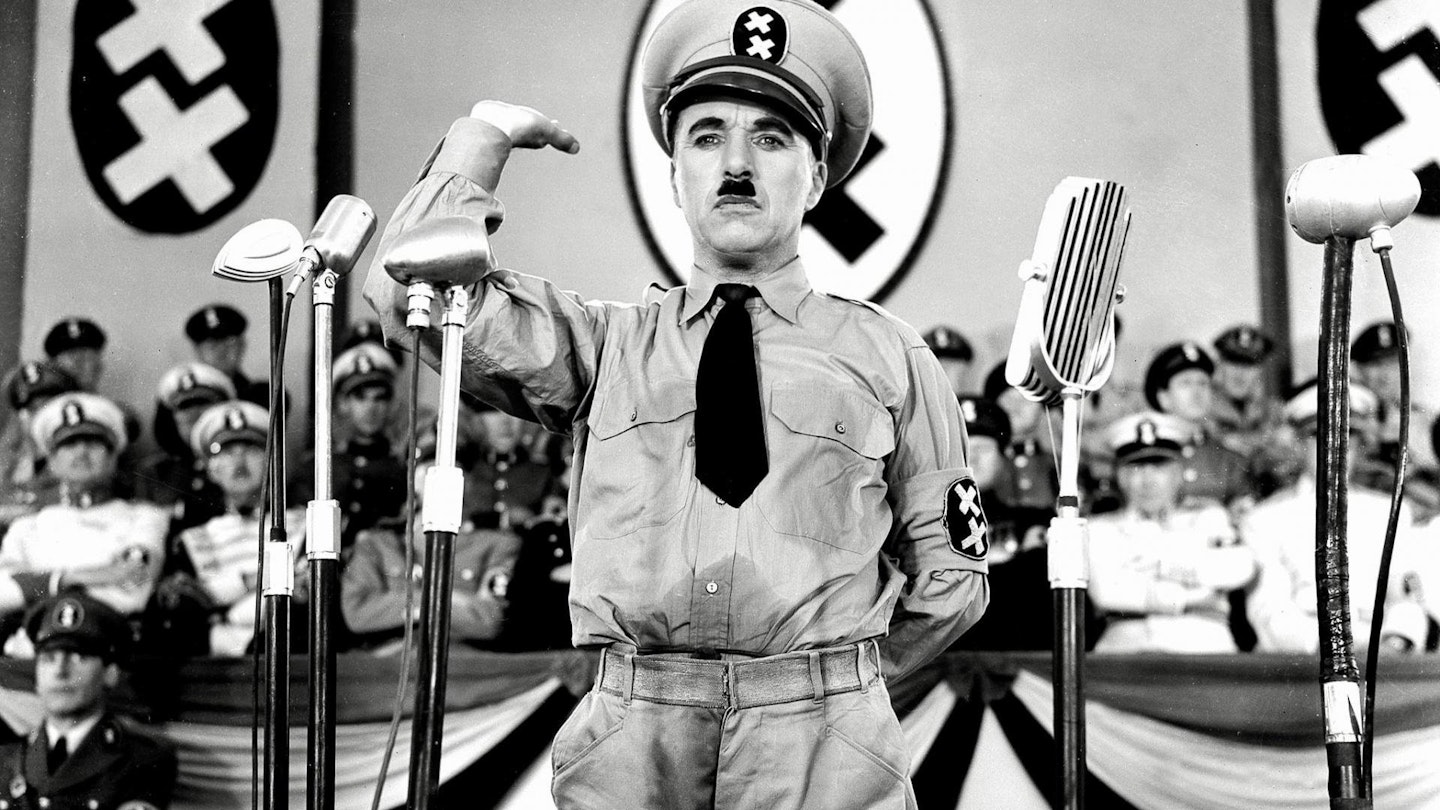Charlie Chaplin and Adolf Hitler were born in the same week in April 1899. But, as the opening caption of this daring satire insists, `Any resemblance between Hynkel the dictator and the Jewish barber is purely co-incidental'. This was a piercingly double-edged gag, as not only had the Reich banned Chaplin's films under the misapprehension that he was a Jew, but the rumour also persisted that Hitler himself was of Semitic extraction.
The picture certainly ruffled feathers in Germany, with the Consul George Gyssling writing to Hollywood's moral guardian, Joseph Breen, to have the project quashed when it was announced in 1939. Yet, it was later asserted that the Führer had imported a print from Portugal and had watched it twice. His reaction was never recorded, but his architect, Albert Speer, claimed that Chaplin's impersonation of Hitler's mannerisms was uncanny.
Seven years after its release, The Great Dictator got Chaplin into even more trouble, when his former friend and onetime Communist sympathiser Konrad Bercovici sued him for $5 million for plagiarising his original idea. Chaplin settled out of court for $90,000, although he always insisted that the producer Alexander Korda had suggested a comedy trading on his similarity to Hitler in 1937.
Moreover, it's hard to think of anyone else devising such comic business as the barber shaving to the accompaniment of Brahms's Hungarian dance, Hynkel pirhouetting around his office balancing a giant floating globe or the Tomanian and Bacterian dictators fighting for supremacy in elevator chairs. The concluding speech, in which the barber appeals for world peace, was also pure Chaplin - although, by the time it was finished, the picture's primary purpose was to rouse America from its isolationist lethargy to combat the threat posed by Fascism.
The film drew a mixed critical response, but received five Oscar nominations. It remains both funny and poignant, with Chaplin excelling in his dual role, while being magnificently supported by Henry Daniell as Garbitsch, Billy Gilbert as Herring and Jack Oakie as the competitively bombastic Napolini.
